Acupoint
How to submit an article:
- Registered users can submit any published journal article that has a unique DOI (Digital Object Identifier) name or link to Research Hub.
- For example, you can paste the full DOI link:
https://doi.org/10.1109/5.771073or just the DOI name:10.1109/5.771073into the field above and click submit. - The person who is first to submit a valid article to Research Hub will forever be credited for it, and every article submission earns you +6 Research Points.
Related Topics
Published research studies are articles that present the findings of original research that has undergone a peer-review process and has been made publicly available in scholarly journals, books or other media.
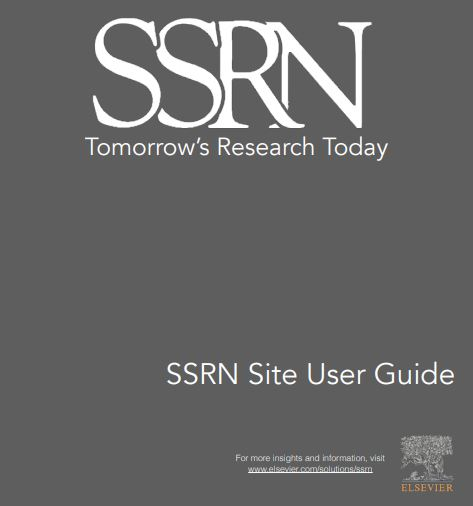
Efficacy and Safety of Different Acupuncture Therapies for Patients with Ulcerative Colitis:A Systematic Review And Network Meta-Analysis
2024 Jan SSRN Electronic Journal Zhang X, Yang S, Jin Y, Cheng X, Lu H, Wu H, et al.
Meta-Analysis Systematic Review Moxibustion Acupuncture Ulcerative ColitisDiverse acupuncture therapies, especially moxibustion, emerged as superior methods for alleviating ulcerative colitis symptoms in clinical practice.
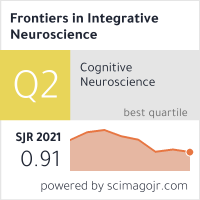
The effect of acupuncture at the Taiyang acupoint on visual function and EEG microstates in myopia
2023 Nov 15 Frontiers in Integrative Neuroscience Su K, Wang L, Wang Z, Ma J, Zhang C, Bi H, et al.
Experimental Study Clinical Study Acupuncture MyopiaAcupuncture can enhance visual function in people with myopia via particular changes in brain activity.
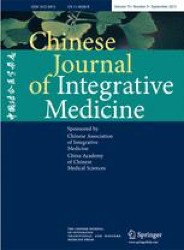
Pregnancy Benefit of Acupuncture on in vitro Fertilization: A Systematic Review and Meta-Analysis
2023 Oct 10 Chinese Journal of Integrative Medicine Zhang H, Zhang C, Ma P, Sun C, Sun C, Liu X, et al.
Systematic Review Meta-Analysis IVFAcupuncture may have a positive impact on clinical pregnancy rate and live birth rate in women undergoing in vitro fertilization (IVF), although the results are limited by the heterogeneity of the current evidence.

Efficacy and safety of acupoint application in the treatment of ulcerative colitis: A systematic review and meta-analysis
2023 Aug 18 Medicine Tong Y, Yu Y, Yin S, Lin S, Chen Y, Su X
Meta-Analysis Systematic Review Ulcerative ColitisAcupoint application has been proven to be a safe and effective method for the treatment of ulcerative colitis.
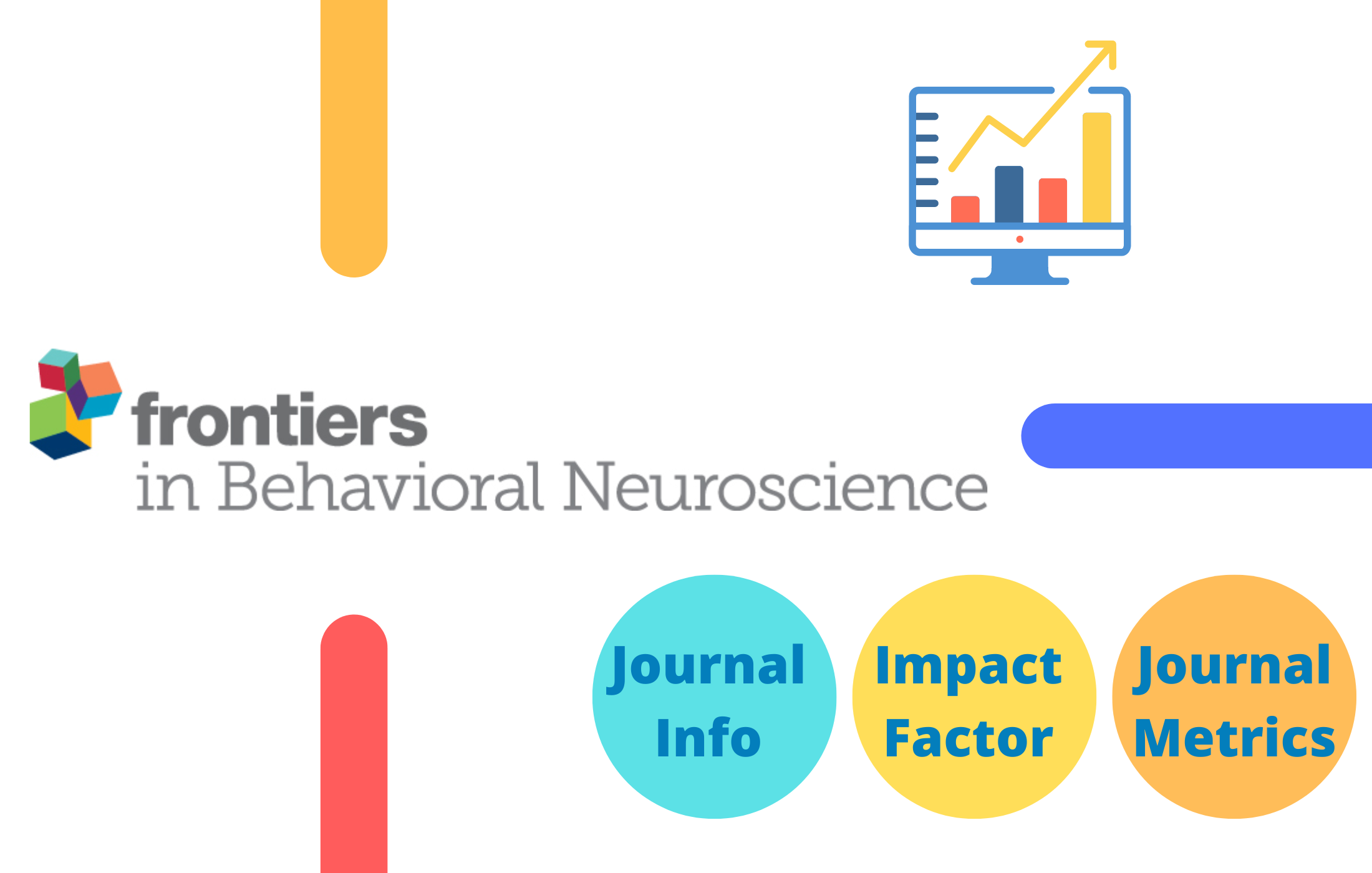
Efficacy and underlying mechanisms of acupuncture therapy for PTSD: evidence from animal and clinical studies
2023 May 02 Frontiers in Behavioral Neuroscience Tang X, Lin S, Fang D, Lin B, Yao L, Wang L, et al.
In conclusion, many studies have confirmed that acupuncture could improve many symptoms in patients with PTSD by meta-analysis. Acupuncture's effect on PTSD may be mediated by the promotion of neuroprotection, neurogenesis, and synaptic plasticity in multiple brain areas, the regulation of stress responses in the neuroendocrine system, and signaling pathway involvement. This finding indicates that acupuncture has promising potential for treating PTSD.
Review Article Acupuncture PTSDResearch insights are moderated by the Research Hub team and offer an at-a-glance overview of interesting research findings.

2024 SSRN Electronic Journal
Diverse acupuncture therapies, especially moxibustion, emerged as superior methods for alleviating ulcerative colitis symptoms in clinical practice.
Meta-Analysis Acupuncture Moxibustion Ulcerative Colitis
Efficacy and Safety of Different Acupuncture Therapies for Patients with Ulcerative Colitis:A Systematic Review And Network Meta-Analysis
Zhang X, Yang S, Jin Y, Cheng X, Lu H, Wu H, et al.

2023 Frontiers in Integrative Neuroscience
Acupuncture can enhance visual function in people with myopia via particular changes in brain activity.
Experimental Study Acupuncture Myopia
The effect of acupuncture at the Taiyang acupoint on visual function and EEG microstates in myopia
Su K, Wang L, Wang Z, Ma J, Zhang C, Bi H, et al.

2023 Chinese Journal of Integrative Medicine
Acupuncture may have a positive impact on clinical pregnancy rate and live birth rate in women undergoing in vitro fertilization (IVF), although the results are limited by the heterogeneity of the current evidence.
Systematic Review IVF
Pregnancy Benefit of Acupuncture on in vitro Fertilization: A Systematic Review and Meta-Analysis
Zhang H, Zhang C, Ma P, Sun C, Sun C, Liu X, et al.

2023 Medicine
Acupoint application has been proven to be a safe and effective method for the treatment of ulcerative colitis.
Meta-Analysis Ulcerative Colitis
Efficacy and safety of acupoint application in the treatment of ulcerative colitis: A systematic review and meta-analysis
Tong Y, Yu Y, Yin S, Lin S, Chen Y, Su X

2022 Medicine
Acupuncture using Lingguibafa acupoint selection shows notable improvements in various sleep parameters for individuals suffering from insomnia.
Meta-Analysis Ling Gui Ba Fa
The efficacy of acupuncture with Lingguibafa acupoint selection in the treatment of insomnia: A PRISMA-compliant meta-analysis
Ji H, Zhang K, Lu Y, Kong X, Ma X
Review Articles
Review articles summarise and critically evaluate the current state of research on a specific topic or field by synthesising multiple primary research studies.

Efficacy and Safety of Different Acupuncture Therapies for Patients with Ulcerative Colitis:A Systematic Review And Network Meta-Analysis
2024 Jan SSRN Electronic Journal Zhang X, Yang S, Jin Y, Cheng X, Lu H, Wu H, et al.
Meta-Analysis Systematic Review Moxibustion Acupuncture Ulcerative ColitisDiverse acupuncture therapies, especially moxibustion, emerged as superior methods for alleviating ulcerative colitis symptoms in clinical practice.

Pregnancy Benefit of Acupuncture on in vitro Fertilization: A Systematic Review and Meta-Analysis
2023 Oct 10 Chinese Journal of Integrative Medicine Zhang H, Zhang C, Ma P, Sun C, Sun C, Liu X, et al.
Systematic Review Meta-Analysis IVFAcupuncture may have a positive impact on clinical pregnancy rate and live birth rate in women undergoing in vitro fertilization (IVF), although the results are limited by the heterogeneity of the current evidence.
Review(s) Completed, Editorial Evaluation Pending, as of 20 Oct 2021. —Ve-Vinn L 22 Oct 2021

Efficacy and safety of acupoint application in the treatment of ulcerative colitis: A systematic review and meta-analysis
2023 Aug 18 Medicine Tong Y, Yu Y, Yin S, Lin S, Chen Y, Su X
Meta-Analysis Systematic Review Ulcerative ColitisAcupoint application has been proven to be a safe and effective method for the treatment of ulcerative colitis.

Efficacy and underlying mechanisms of acupuncture therapy for PTSD: evidence from animal and clinical studies
2023 May 02 Frontiers in Behavioral Neuroscience Tang X, Lin S, Fang D, Lin B, Yao L, Wang L, et al.
In conclusion, many studies have confirmed that acupuncture could improve many symptoms in patients with PTSD by meta-analysis. Acupuncture's effect on PTSD may be mediated by the promotion of neuroprotection, neurogenesis, and synaptic plasticity in multiple brain areas, the regulation of stress responses in the neuroendocrine system, and signaling pathway involvement. This finding indicates that acupuncture has promising potential for treating PTSD.
Review Article Acupuncture PTSD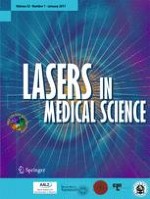
Effect of low-level laser stimulation of acupuncture points in pediatric dentistry: a systematic review
2023 Jan 24 Lasers in Medical Science Mira PCS, Vilela LD, Corona SAM, Borsatto MC
The LLLT at acupuncture points is associated with positive results on sleep bruxism, preanesthetic pain, and gag reflex in pediatric dentistry.
Systematic Review Bruxism Children's HealthClinical Trials
Clinical trials are research studies that involve people and are conducted to evaluate the safety and efficacy of new treatments or interventions, such as drugs, medical devices, or behavioural therapies.

Acupuncture for chemotherapy-associated insomnia in breast cancer patients: an assessor-participant blinded, randomized, sham-controlled trial
2023 Apr 26 Breast Cancer Research Zhang J, Qin Z, So TH, Chang TY, Yang S, Chen H, et al.
The active acupuncture regimen, combining needling into body acupoints and acupressure on auricular acupoints, was not superior to sham control in reducing the Insomnia Severity Index (ISI) score from baseline to 6 weeks. However, it produced short-term treatment and long-term follow-up better outcomes in improving sleep onset latency, total sleep time, sleep efficiency, anxiety, depression, and quality of life. Participants in the active acupuncture group had a higher cessation rate of sleeping medications than the sham control, indicating that acupuncture could be an effective option for managing chemotherapy-associated insomnia and serve as a tapering approach to reduce the use of sleeping medications in breast cancer patients.
Randomised Controlled Trial Breast Cancer Chemotherapy-Associated Insomnia Acupuncture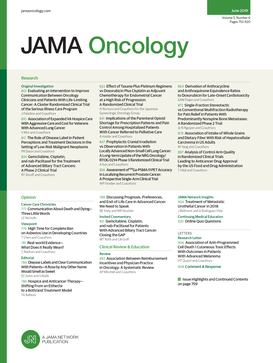
Efficacy of Acupoint Application on In Vitro Fertilization Outcome in Patients with Polycystic Ovary Syndrome: A UHPLC-MS-Based Metabolomic Study
2022 Oct 14 JAMA Oncology Yu L, Xia Q, Sun Z, Song J
Acupoint application can effectively improve the clinical symptoms and the outcome of IVF-ET treatment in patients with PCOS of the phlegm-dampness type, and its mechanism of action may be related to the regulation of the pathways of pyruvate metabolism, nicotinate and nicotinamide metabolism, protein digestion and absorption, biosynthesis of amino acids, and pyrimidine metabolism.
Randomised Controlled Trial IVF PCOS Acupoint
Home‐based transcutaneous electrical acupoint stimulation for high‐normal blood pressure: A randomized controlled trial
2022 Jul 04 The Journal of Clinical Hypertension Wang Y, Yang JW, Liu JH, Qi YS, Tu JF, Tian ZX, et al.
The authors found a reduction in systolic blood pressure (SBP) control in the pragmatic, home-based intervention by using transcutaneous electrical acupoint stimulation (TEAS) combined with lifestyle modification in adults with high-normal BP.
Randomised Controlled Trial Electroacupuncture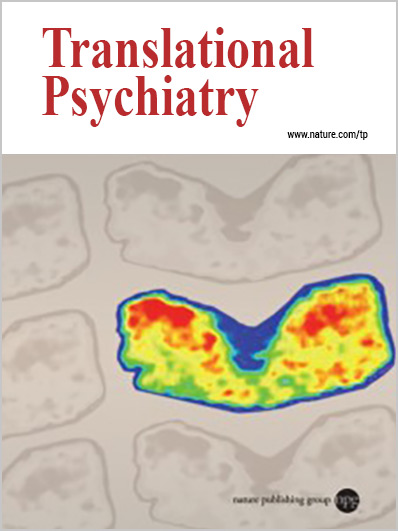
Transcutaneous electrical acupoint stimulation for children with attention-deficit/hyperactivity disorder: a randomized clinical trial
2022 Apr 21 Translational Psychiatry Zhuo L, Zhao X, Zhai Y, Zhao B, Tian L, Zhang Y, et al.
Children with ADHD who received TEAS demonstrated significant improvement in general symptoms, as indicated by higher Clinical Global Impression-Improvement (CGI-I) scores, a greater decrease in Clinical Global Impression-Severity of Illness (CGI-S) scores, and enhanced prefrontal cortex blood flow compared to the sham TEAS group.
Randomised Controlled Trial Acupoint
ATAS Acupuncture Reduces Chemotherapy Induced Fatigue in Breast Cancer Through Regulating ADROA1 Expression: A Randomized Sham-Controlled Pilot Trial
2020 Nov OncoTargets and Therapy Li YF, Liu DQ, Nie JY, Chen DD, Yan M, Zuo Z, et al.
ATAS acupuncture was shown to be effective in improving symptoms, including fatigue, anxiety, and insomnia throughout the chemotherapy process, with the ATAS acupuncture group exhibiting decreased VAS-F scores and lower MFI-20 scores compared to the sham and non-acupuncture groups. The mechanism of ATAS acupuncture's fatigue reduction may be associated with the ADROA1 gene, regulating the cGMP/PKG pathway.
Randomised Controlled TrialStudy Protocols
Published study protocols are detailed plans that outline the objectives, methodology, statistical analyses, and organisation of a research study that have been made publicly available for others to review and use as a reference.
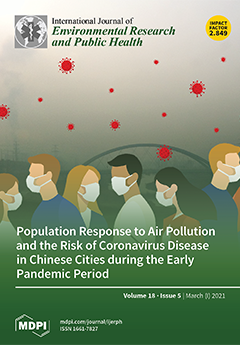
Pharmacopuncture Effects on Insomnia Disorder: Protocol for a Multi-Site, Randomized, Acupuncture-Controlled, Clinical Trial
2022 Dec 12 International Journal of Environmental Research and Public Health Lim JH, Lee JH, Kwon CY, Lee SH, Kang CW, Cho E, et al.
The findings of this trial willprovide evidence that will be useful in clinical decision-making for insomnia treatment strategies.
Study Protocol Acupuncture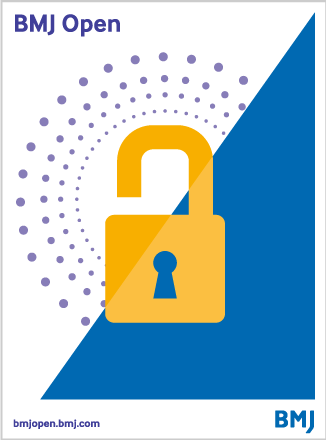
Immediate acupuncture with GB34 for biliary colic: protocol for a randomised controlled neuroimaging trial
2022 Jan BMJ Open Sun N, He DM, Ye X, Bin L, Zhou Y, Deng X, et al.
The findings may provide evidence of the clinical benefits and mechanisms of acupuncture for patients with biliary colic (BC).
Study Protocol Gallstones
A protocol for systematic review and meta-analysis of the effect of acupoint therapy for essential hypertension
2020 Oct 2 Medicine Zhang XD, Zhao JP, Wu JJ, Xie Q, Wang Y, Liu QG
Acupuncture has been reported to have potential effects in treating hypertension. This study provides the evidence of acupuncture therapy for essential hypertension.
Study Protocol High Blood Pressure
Clinical study on acupuncture acupoints around the eyes in treating myopia in children and adolescents
2020 Oct 23 Medicine Huang, Qun; Yang, Yang; Huang, Hui; Zheng, Yanlin; Wang, Wanjie; Liao, et al.
Our study will compare acupuncture Deqi with acupuncture without Deqi, and place it in a control group for the treatment of myopia. The results of this trial are expected to provide solid evidence for the effectiveness and safety of acupuncture combined with Deqi in the treatment of myopia, and hope to provide a reference for clinical practice.
Study Protocol Children's Health
Treatment for Multiple Sclerosis: Kidney-Du-Brain Axis (KIDUBA) Acupuncture Protocol
2020 Jul 01 Annals of Chinese Medicine Lai, Han, Yi Xiang Liu, and Hui Zhang
The review concluded that in Chinese Medicine (CM), the Kidney-DU-Brain Axis (KIDUBA) plays a key role in the pathogenesis of MS. Fundamental acupoints including GB39, SP6, DU4, BL23, SI3, Sishencong are recommended according to the principle of supplementing kidney and marrow and opening blockages in Du channel and the brain.
Study ProtocolPresentation Slides

Meta-Analysis
Diverse acupuncture therapies, especially moxibustion, emerged as superior methods for alleviating ulcerative colitis symptoms in clinical practice.
Zhang X, Yang S, Jin Y, Cheng X, Lu H, Wu H, Ji J

Experimental Study
Acupuncture can enhance visual function in people with myopia via particular changes in brain activity.
Su K, Wang L, Wang Z, Ma J, Zhang C, Bi H, Wu J

Systematic Review
Acupuncture may have a positive impact on clinical pregnancy rate and live birth rate in women undergoing in vitro fertilization (IVF), although the results are limited by the heterogeneity of the current evidence.
Zhang H, Zhang C, Ma P, Sun C, Sun C, Liu X, Pu Z, Lin Y, Liu B, Liu C, Yan S

Meta-Analysis
Acupoint application has been proven to be a safe and effective method for the treatment of ulcerative colitis.
Tong Y, Yu Y, Yin S, Lin S, Chen Y, Su X

Meta-Analysis
Acupuncture using Lingguibafa acupoint selection shows notable improvements in various sleep parameters for individuals suffering from insomnia.
Ji H, Zhang K, Lu Y, Kong X, Ma X

Systematic Review
Acupuncture covering the depth ranges for BL18, BL20, and BL22 and their targeting of various tissues potentially alleviates sympathetic nerve issues and ischemia with assistance of the diaphragm.
Cho Y, Han Y, Kim Y, Han S, Oh K, Chae H, Hongmin C, Ryu M
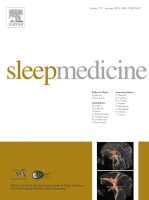
Systematic Review
Multiple acupuncture therapies, particularly acupoints catgut embedding, auricular acupressure + manual acupuncture, and electroacupuncture + acupoint application, significantly improve insomnia symptoms.
Lu Y, Zhu H, Wang Q, Tian C, Lai H, Hou L, Liu Y, Gao Y, Liu M, Yang F, Ni X, Lin L, Niu J, Tian J, Ge L
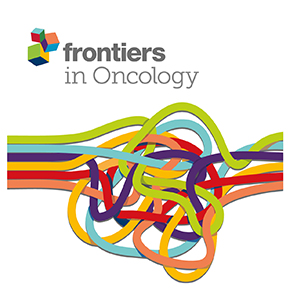
Systematic Review
ST36 acupoint injections with dexamethasone outperforms conventional western medicine in treating chemotherapy-induced myelosuppression, significantly improving clinical efficacy and recovery.
Chen J, Lin Z, Ding J

Systematic Review
Acupuncture appears to have an effect on diabetic peripheral neuropathy, effectively improving nerve conduction and clinical symptoms.
Yu B, Li M, Huang H, Ma S, Huang K, Zhong Z, Yu S, Zhang L.

Systematic Review
Gui Zhi Decoction and associated formulas significantly improve the effectiveness of allergic rhinitis treatments when used alone or combined with Western medicine.
Yang S, Fu Q, Deng H, Wu J, Zhang Q, Wang L, Yao X

Systematic Review
In a meta-analysis of 14 trials with 1030 women, acupoint stimulation and Chinese Herbal Medicine were effective in improving menstrual cycles, perimenopausal symptoms, and sex hormone levels in comparison to Hormone Replacement Therapy.
Li Y, Xia G, Tan Y, Shuai J
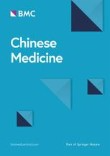
Systematic Review
Our findings revealed that all acupuncture methods are effective and safe for allergic rhinitis. Acupuncture plus conventional medicine are potentially the most effective treatment strategies for allergic rhinitis.
Yin, Z., Geng, G., Xu, G. et al.

Experimental Study
Needling at the GB20 acupoint in Traditional Chinese Medicine can reverse the expression of certain genes related to axon development and regeneration in optic neuritis.
Chen J, Zhang L, Gan X, Zhang R, He Y, Lv Q, Fu H, Liu X, Miao L

Randomised Controlled Trial
Combining acupuncture via shu-stream acupoints with the Chinese herbal formulation Dang Gui Yin Zi presents a potentially effective treatment for Chronic Spontaneous Urticaria.
Qin Y, Guo J, Song P, Hou T, He Y, Han M, Yu Q, Lin W, Chen M, Su H
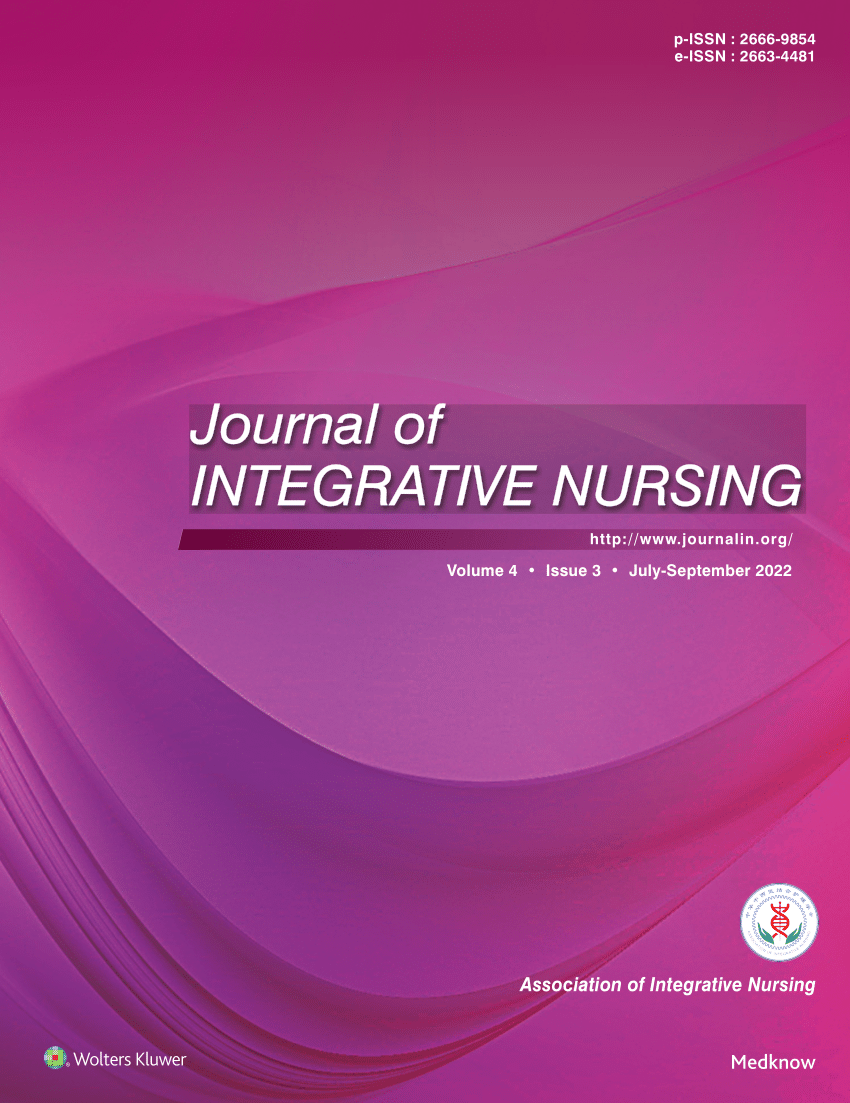
Systematic Review
Acupoint massage enhances acute mastitis treatment.
Hui JU, Xue-Ling MA, Hong GUO, Hai-Yan WANG, You-Hua LIU, Luo YANG, Ling TANG
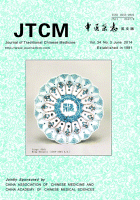
Systematic Review
Stimulating acupoints had positive effects on childhood cough variant asthma and was a relatively safe treatment.
Jin Yutong, Chen Shan, Xuan Lihua

Systematic Review
Compared with other therapies, acupuncture at ST38 appeared to reach a better therapeutic effectiveness in improving the recovery of shoulder joint mobility.
Yang C, Lv TT, Yu TY, Wong S, Lu MQ, Li YZ
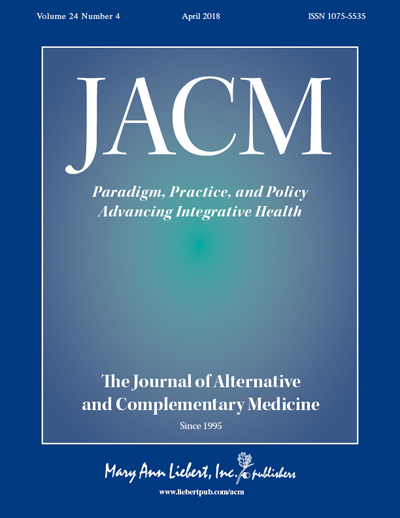
Systematic Review
Acupuncture-related techniques could be considered as an alternative or adjuvant therapy for psoriasis in short term.
Yeh, M. L., Ko, S. H., Wang, M. H., Chi, C. C., & Chung, Y. C.

Systematic Review
Acupoint-stimulation can relieve pain effectively in the treatment of primary dysmenorrhea and offers advantages compared with treatment by NSAIDs.
Xu, Y., Zhao, W., Li, T. et al.
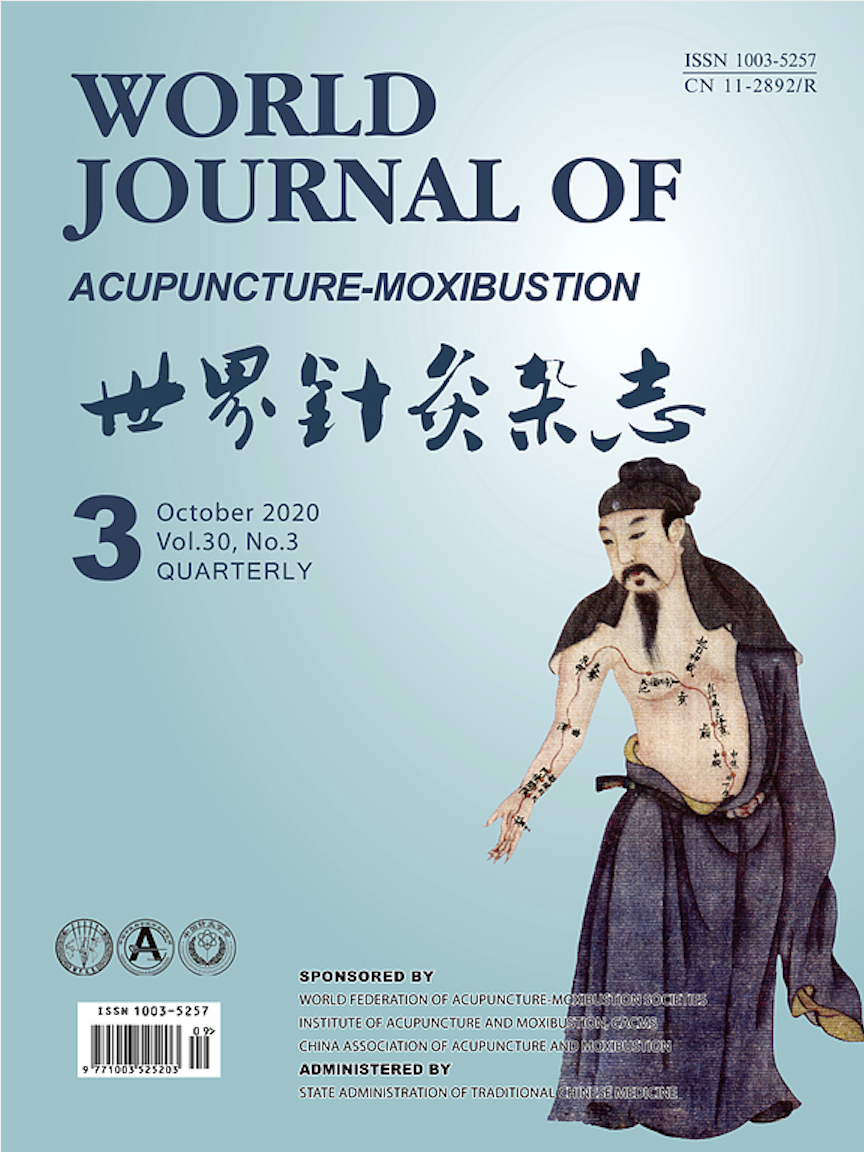
Systematic Review
Acupuncture's acupoint selection for treating PCOS, identifying top acupoints like Sānyīnjiāo (SP 6) and Guānyuán (CV 4). Findings reveal modern acupuncture's alignment with traditional theory, often targeting abdomen and lower limb points, including front-mu, he-sea, matching, and back-shu points.
YU C, KONG L, MA C, SHEN F, YAO GJ, XIONG Y, ZHOU H
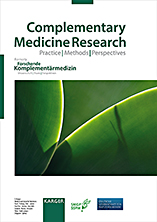
Systematic Review
Acupoint application may be a valid complementary and alternative therapy for asthma in adults.
Su L., Meng L., Chen R., Wu W., Peng B., Man L.
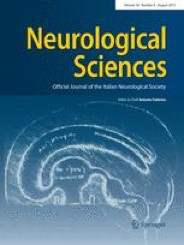
Review Article
There is an emerging role of acupuncture in the treatment of cluster headache with a possible influence on the opioid system.
Fofi L, Allais G, Quirico PE, Rolando S, Borgogno P, Barbanti P, Benedetto C

Systematic Review
Our findings suggest that acupressure at the SP6 acupoint may provide more effective pain relief than that of control treatment.
Chen MN, Chien LW, Liu CF
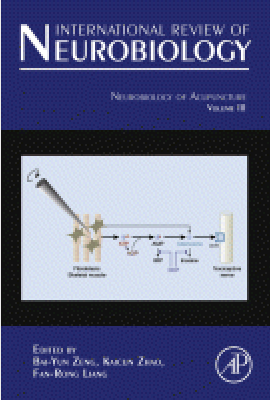
Systematic Review
The clinical efficacy of acupuncture appeared to be supported by evidence obtained from basic neuroendocrinological studies.
Kaicun Zhao

Randomised Controlled Trial
Acupuncture can provide pain relief to patients with plantar fasciitis.
Shi Ping Zhang , Tsui-Pik Yip, Qiu-Shi Li
Executive Summary
Write an executive summary in the form of a blog article on the topic of "Research into Chinese medicine treatment for Acupoint" summarising the research below and using language that can be easily understood by patients and avoiding medical jargon using a professional and caring tone of voice.
Write an executive summary in the form of a blog article on the topic of "Researched Chinese medicine treatments for Acupoint" summarising the research below in an objective and easy to understand way, and using language that can be easily understood by patients. Group the article into Chinese medicine treatments first, followed by nutrition and other treatments. Avoid using medical jargon and use a professional and caring tone of voice.
Write me a concise but easy to understand executive summary on the topic of "Chinese medicine treatments for Acupoint" based on the following research that I will give you. Your summary should be 2 paragraphs long in Australian English spelling and include references to the studies.
A Meta-Analysis published in 2024 in the journal SSRN Electronic Journal found that Diverse acupuncture therapies, especially moxibustion, emerged as superior methods for alleviating ulcerative colitis symptoms in clinical practice. Methodology: The researchers carried out a systematic review and network meta-analysis of clinical efficacy of various acupuncture therapies for ulcerative colitis patients. They accomplished this by sourcing for Clinical Randomized Controlled trial articles from databases such as PubMed, Embase, Cochrane Library, and other data knowledge service platforms, all of which were independently reviewed by two researchers. Several quality assessments were made through Review Manager software, and the meta-analysis was conducted with Stata 16 software. Interventions examined in the analysis included acupuncture, moxibustion, acupoint catgut embedding, and combinations of these therapies with Western medicine. Discussion of results: 52 articles encompassing 3924 patients participated in randomized control trials. The investigation revealed a range of interventions, including different acupuncture therapies and combinations of these therapies with Western medicine. Namely, moxibustion, either on its own or combined with Western medicine, consistently surfaced as top-ranked for overall effectiveness and specific outcomes. Moreover, moxibustion displayed impressive performance in reducing adverse reactions and recurrence rates. Thus, various acupuncture therapies were confirmed as safe and effective for the treatment of ulcerative colitis, with moxibustion emerging as the most effective.
A Experimental Study published in 2023 in the journal Frontiers in Integrative Neuroscience found that Acupuncture can enhance visual function in people with myopia via particular changes in brain activity. In this study, a group of 21 myopic patients received acupuncture at a specific acupoint. To assess the impact of this treatment on their vision, a technique known as contrast sensitivity (CS) was used to analyse vision quality before and after the acupuncture process. At the same time, electroencephalography (EEG) was employed to record changes in brain activity throughout the procedure. It was observed post-acupuncture that patients' contrast sensitivity was generally better, implying improved visual abilities. Moreover, EEG data divulged certain changes in brain states labelled as 'microstates', particularly a decrease in the contribution of 'microstate C' and a lower transition probability between 'microstate A' and 'microstate C'. Furthermore, analysis showed a negative correlation between the contribution of 'microstate C' and contrast sensitivity. These findings suggest a connection between the enhancement of visual function and specific neurophysiological processes.
A Systematic Review published in 2023 in the journal Chinese Journal of Integrative Medicine found that Acupuncture may have a positive impact on clinical pregnancy rate and live birth rate in women undergoing in vitro fertilization (IVF), although the results are limited by the heterogeneity of the current evidence. This study aimed to assess the efficacy of acupuncture on embryo transfer in women undergoing in vitro fertilization (IVF). A total of 49 randomized controlled trials (RCTs) involving 9422 women were analyzed. The results indicated that acupuncture had a significant positive impact on the clinical pregnancy rate (CPR) and live birth rate (LBR) compared to the control groups (odds ratio [OR]=1.65 for CPR, 1.34 for LBR). Subgroup analyses showed that traditional acupuncture was more beneficial for women aged < 35 years, those receiving ≥ 3 sessions, and those with lower baseline CPR rates in the control group. However, significant heterogeneity was observed among the studies. In conclusion, while there were some benefits of acupuncture in improving CPR and LBR in IVF, the results should be interpreted with caution due to the variability in the current evidence.
A Meta-Analysis published in 2023 in the journal Medicine found that Acupoint application has been proven to be a safe and effective method for the treatment of ulcerative colitis. The methodology incorporated a systematic review of various databases including China National Knowledge Infrastructure, Chinese Biology Medicine, VIP, Wanfang, Embase, PubMed, the Cochrane Library and Web of Science up to July 2022 to find published randomized controlled trials on the use of acupoint application in treating ulcerative colitis. Meta-analysis and trial sequential analysis were then performed on the selected studies. The results from the 13 analyzed trials involving a total of 878 cases revealed that the use of acupoint application improved the rates of effective clinical comprehensive and syndrome in ulcerative colitis treatment compared to conventional western medicine. The method also showed advantages in increasing interleukin-4 and reducing interferon-gamma. Also noted was that there were no variances seen regarding colonoscopy, pathological examination, and reaction rates when compared with traditional methods. The quality of the evidence used for these conclusions varied, with some being of moderate quality and others deemed low or very low quality.
A Meta-Analysis published in 2022 in the journal Medicine found that Acupuncture using Lingguibafa acupoint selection shows notable improvements in various sleep parameters for individuals suffering from insomnia. The study conducted an extensive systematic search through multiple databases such as PubMed, Web of Science, Embase, and more for randomized controlled trials that compared Lingguibafa acupoint selection acupuncture with dialectical acupoint selection acupuncture in treating insomnia. Two independent review authors extracted data and assessed each trial's quality. A meta-analysis was subsequently performed using random-effects models to calculate relative risks and weighted mean differences for categorical and continuous variables respectively. The inclusion of seven trials involving 468 patients showed that acupuncture with Lingguibafa acupoint selection either alone or combined with dialectical acupoint selection resulted in significant improvements in multiple sleep parameters, notably the Pittsburgh Sleep Quality Index score. There were also substantial improvements in sleep quality, latency, and daytime function. However, it had no significant effect in treating sleep disorder and dependence on hypnotic drugs. While the overall total effectiveness rate was higher in the Lingguibafa acupoint selection group, the conclusion was deemed less credible due to the poor methodological quality across the trials.
A Systematic Review published in 2022 in the journal Medicine found that Acupuncture covering the depth ranges for BL18, BL20, and BL22 and their targeting of various tissues potentially alleviates sympathetic nerve issues and ischemia with assistance of the diaphragm. Review analyzed 115 articles on needling depth and angle for back-shu acupuncture points in GI diseases. Key findings include the depth range for BL18, BL20, and BL22 points, their targeting of muscles, nerves, and diaphragmatic tissues, and the potential for acupuncture to alleviate sympathetic nerve overexcitability and ischemia while emphasizing the diaphragm's role in digestive function.
A Systematic Review published in 2022 in the journal Sleep Medicine found that Multiple acupuncture therapies, particularly acupoints catgut embedding, auricular acupressure + manual acupuncture, and electroacupuncture + acupoint application, significantly improve insomnia symptoms. In this research, a systematic literature search was conducted to extract data from 57 randomized controlled trials involving 4678 patients who underwent various acupuncture therapies for primary insomnia. The researchers independently screened the literature and performed a risk of bias assessment. Data from the trials were analyzed using R and Stata software, followed by an evidence assessment using the Grading of Recommendations Assessment, Development, and Evaluation system. Results showed that various acupuncture therapies, particularly acupoints catgut embedding, auricular acupressure or auricular acupuncture plus manual acupuncture, and electroacupuncture plus acupoint application, showed better effectiveness in improving insomnia, compared to the usual treatments. However, differences between the therapies were considered small or insignificant. The most common minor adverse events reported were hematoma, pain, headache, and bleeding.
A Systematic Review published in 2021 in the journal Frontiers in Oncology found that ST36 acupoint injections with dexamethasone outperforms conventional western medicine in treating chemotherapy-induced myelosuppression, significantly improving clinical efficacy and recovery. The study executed a systematic evaluation of the efficacy of ST36 acupoint injection with dexamethasone in treating chemotherapy-induced myelosuppression. A total of 17 randomized controlled trials from eight different databases were extracted for this meta-analysis. A detailed examination and analysis of various data gathered were performed using the Cochrane Collaboration tool for bias, Excel 2010 for creating an information extraction database, and RevMan 5.3.0 software for analyzing test data. The quality of evidence was graded using GRADE profiler 3.6 software. The results indicated that compared to conventional western medicine, ST36 acupoint injection with dexamethasone vastly improved the clinical aggregate effective rate. Notably, it increased the white blood cell count and hemoglobin levels in patients, further enhancing their Karnofsky performance status. The treatment also shortened the recovery time of myelosuppression. However, there were no significant differences observed in platelet elevation between the ST36 acupoint injection with dexamethasone and conventional western medicine.
A Systematic Review published in 2021 in the journal Journal of Clinical Pharmacy and Therapeutics found that Acupuncture appears to have an effect on diabetic peripheral neuropathy, effectively improving nerve conduction and clinical symptoms. Acupuncture appears to have an effect on DPN, effectively improving nerve conduction and clinical symptoms. Although the methodological quality of the included studies was generally very low and defects were frequent, our study highlights areas where improvement in methodology is required. There is a need for further study of the pathogenesis of DPN, and for developing a unified standard for methods of acupuncture treatment, acupoint selection, and adverse reactions reporting. Traditional Chinese medical practices such as acupuncture should adopt an evidence-based approach to provide greater confidence in their use.
A Systematic Review published in 2021 in the journal Evidence-Based Complementary and Alternative Medicine found that Gui Zhi Decoction and associated formulas significantly improve the effectiveness of allergic rhinitis treatments when used alone or combined with Western medicine. The study aimed to evaluate the efficacy of Guizhi Decoction and associated formulas for treating allergic rhinitis. It included a comprehensive search of seven online databases for studies published until February 23, 2020. Each selected study's quality was assessed using the Cochrane Collaboration risk of bias tool. The research used systematic reviews based on the Cochrane systematic review method, facilitated by RevMan 5.3 Software. Interventions in the study varied from using Guizhi Decoction and associated formulas alone to combining them with Western medicine, acupoint-based therapy, Chinese patent medicine, and placebo control. Data from 23 trials involving 2281 participants were collected and systematically analysed. The results showed that Guizhi Decoction and associated formulas, either alone or in conjunction with Western medicine or acupoint-based therapies, exhibited higher efficacy compared to Western medicine alone. The study also reported that adding nasal traditional Chinese medicine fumigation therapy to the Guizhi Decoction formulations could further improve treatment effectiveness. Adverse events were primarily mild and primarily associated with the control groups that used Western medicine alone, requiring no specific medical intervention.
A Systematic Review published in 2020 in the journal Complementary Therapies in Medicine found that In a meta-analysis of 14 trials with 1030 women, acupoint stimulation and Chinese Herbal Medicine were effective in improving menstrual cycles, perimenopausal symptoms, and sex hormone levels in comparison to Hormone Replacement Therapy. In a meta-analysis involving 14 trials with 1030 women experiencing Premature Ovarian Insufficiency (POI), acupoint stimulation and Chinese Herbal Medicine (CHM) were found to offer benefits in normalizing menstrual cycles and improving perimenopausal symptoms, compared to Hormone Replacement Therapy (HRT). These treatments also effectively lowered follicle stimulating hormone levels and increased estradiol levels when compared to HRT. However, there were no significant differences in luteinizing hormone levels or adverse effects between the groups. The conclusion of the study is that acupoint stimulation and CHM can be considered complementary therapies for alleviating menstrual disorders, perimenopausal symptoms, and serum sex hormone levels in POI females.
A Systematic Review published in 2020 in the journal Chinese Medicine found that Our findings revealed that all acupuncture methods are effective and safe for allergic rhinitis. Acupuncture plus conventional medicine are potentially the most effective treatment strategies for allergic rhinitis. Our findings revealed that all acupuncture methods are effective and safe for allergic rhinitis. Moreover, either moxibustion or manual acupuncture plus conventional medicine are potentially the most effective treatment strategies for allergic rhinitis. Based on these findings, it is evident that acupuncture therapy is not inferior to pharmacologic therapy. Therefore, for allergic rhinitis patients who are either unresponsive to conventional medicine or are intolerant to adverse events, acupuncture therapy should be administered. However, the quality of these included trials was mainly ranked as moderate quality, we recommend additional well-designed RCTs with larger sample sizes to validate these findings.
A Experimental Study published in 2020 in the journal Frontiers in Integrative Neuroscience found that Needling at the GB20 acupoint in Traditional Chinese Medicine can reverse the expression of certain genes related to axon development and regeneration in optic neuritis. To explore the molecular mechanisms of GB20 acupoint needling treatment on Optic Neuritis, a common symptom of Multiple Sclerosis, an Experimental Autoimmune Encephalomyelitis (EAE) mouse model with EAE-associated optic neuritis was utilized. Traditional Chinese Medicine practices of needling at the GB20 acupoint and GV16 acupoint control treatment were applied, followed by RNA sequencing of the retinal transcriptome to identify differentially expressed genes. In the discussion of the results, it was found that of the genes affected by optic neuritis, needling at the GB20 acupoint reversed the expression of 21 genes, including Nr4a3, Sncg, Uchl1, and Tppp3. These genes are particularly involved in axon development and regeneration, suggesting a beneficial effect from GB20 acupoint needling. Moreover, it was discovered that GB20 needling also influenced the circadian rhythm in the mouse retina with optic neuritis. The GV16 was also identified to be an effective control site for GB20 treatment in animal studies.
A Randomised Controlled Trial published in 2020 in the journal Medicine found that Combining acupuncture via shu-stream acupoints with the Chinese herbal formulation Dang Gui Yin Zi presents a potentially effective treatment for Chronic Spontaneous Urticaria. The research employed a multicenter, randomized, controlled study design emphasizing on evaluating the efficacy and safety of integrating Chinese herbal medicine with a particular acupuncture technique. The research participant group constituted 111 outpatients suffering from Chronic Spontaneous Urticaria, all aged between 18 to 65 years. These participants underwent randomization into three distinct groups. Group A received the basic acupuncture combined with the herbal formulation Danggui Yinzi, while Group B was given Dangui Yinzi and acupuncture using shu-stream acupoints. The control group was only treated using Dangui Yinzi. Treatment for all groups lasted for 4 weeks, with an additional 8-week monitoring period. The study (while ignoring the quantitative data) showed that the alternative approach using a combination of shu-stream acupoints and Chinese herbal medicine in treating Chronic Spontaneous Urticaria resulted in noticeable changes in the patients' conditions. This was reflected in the patients' symptoms, side effects of the treatment, and overall quality of life. This method introduced an innovative, cost-effective, and straightforward treatment strategy for solving a complex clinical issue.
A Systematic Review published in 2019 in the journal Journal of Integrative Nursing found that Acupoint massage enhances acute mastitis treatment. Acupoint massage proves effective in treating acute mastitis, as per a systematic review of 16 randomized controlled trials involving 2056 patients. The analysis indicates that acupoint massage enhances clinical treatment efficiency, shortens onset time, reduces lump size, and alleviates symptoms. However, it shows no significant impact on recurrence or cure rates. While this evidence supports acupoint massage as a beneficial adjunct therapy for acute mastitis, the need for higher-quality studies is emphasized to further validate these findings.
A Systematic Review published in 2018 in the journal Journal of Traditional Chinese Medicine found that Stimulating acupoints had positive effects on childhood cough variant asthma and was a relatively safe treatment. In the study, we found out that the therapeutic effect of stimulating-acupoint group was much better than that of control group in the treatment of childhood cough variant asthma, and the difference was statistically significant. A major strength of our review was that our meta-analysis of 13 studies involving 1,112 participants, the enlarged sample size and accumulating evidence provided more reliable estimates. Furthermore, the original trails included in our study were all prospective, which reduced the selection bias and likelihood of recall bias. The results indicate that stimulating acupoints has a positive effect on cough variant asthma in children, leading to the decreased recurrence rate and cough duration as well as the reducing of eosinophils and IgE. However, the poor methodological quality of the trials lack of persuasiveness, so high quality RCTs with more useful indicators are needed in the future studies.
A Systematic Review published in 2018 in the journal Evidence-Based Complementary and Alternative Medicine found that Compared with other therapies, acupuncture at ST38 appeared to reach a better therapeutic effectiveness in improving the recovery of shoulder joint mobility. The results of our meta-analysis revealed significant differences in acupuncture at Tiaokou (as sole treatment or in combination with shoulder acupoints) versus other therapies (acupuncture at shoulder acupoints, tuina, exercise of the affected shoulder, and oral NSAIDs) for the relief of shoulder pain. What is more, compared with other therapies, acupuncture at Tiaokou appeared to reach a better therapeutic effectiveness in improving the recovery of shoulder joint mobility.
A Systematic Review published in 2017 in the journal The Journal of Alternative and Complementary Medicine found that Acupuncture-related techniques could be considered as an alternative or adjuvant therapy for psoriasis in short term. A total of 13 RCTs with 1,060 participants were included. The methodological quality of included studies was not rigorous. Acupoint stimulation, compared with nonacupoint stimulation, had a significant treatment for psoriasis. However, the most common adverse events were thirst and dry mouth. Subgroup analysis was further done to confirm that the short-term treatment effect was superior to that of the long-term effect in treating psoriasis. Network meta-analysis identified acupressure or acupoint catgut embedding, compared with medication, and had a significant effect for improving psoriasis. It was noted that acupressure was the most effective treatment.
A Systematic Review published in 2017 in the journal BMC Complementary Medicine and Therapies found that Acupoint-stimulation can relieve pain effectively in the treatment of primary dysmenorrhea and offers advantages compared with treatment by NSAIDs. The current evidence reveals that acupoint-stimulation in the treatment of primary dysmenorrhea has some obvious advantages compared with treatment by NSAIDs. The advantages are that acupoint-stimulation can alleviate the symptoms of dysmenorrhoea, reduce the level of peripheral blood PGF2α and has fewer side effect, so it can be used to treat primary dysmenorrhea patients, especially individuals with NSAIDs contraindication.
A Systematic Review published in 2016 in the journal World Journal of Acupuncture-Moxibustion found that Acupuncture's acupoint selection for treating PCOS, identifying top acupoints like Sānyīnjiāo (SP 6) and Guānyuán (CV 4). Findings reveal modern acupuncture's alignment with traditional theory, often targeting abdomen and lower limb points, including front-mu, he-sea, matching, and back-shu points. The study's objective was to analyze acupuncture's acupoint selection patterns for treating polycystic ovary syndrome (PCOS). Acupoint information was gathered from clinical trials retrieved from multiple databases, revealing the most frequently utilized acupoints, including Sānyīnjiāo (SP 6), Guānyuán (CV 4), Zhōngjí (CV 3), and others. The study concludes that modern acupuncture for PCOS is rooted in traditional Chinese acupuncture theory, frequently targeting acupoints along the abdomen and lower limbs, with a preference for front-mu points, he-sea points, matching points, and back-shu points.
A Systematic Review published in 2016 in the journal Complementary Medicine Research found that Acupoint application may be a valid complementary and alternative therapy for asthma in adults. It contributes especially to improving pulmonary function and reducing the levels of interleukin and immunoglobulin E. However, more studies with longer follow-ups are warranted to confirm the current findings.
A Review Article published in 2014 in the journal Neurological Sciences found that There is an emerging role of acupuncture in the treatment of cluster headache with a possible influence on the opioid system. We describe four patients with cluster headache treated with acupuncture as a preventive treatment, combined with verapamil or alone. In all patients an interruption of cluster attacks was obtained. To our knowledge, this is the first report concerning acupuncture in cluster headache patients which details the protocol approach, acupoints and duration of the treatment. Our results offer the opportunity to discuss the emerging role of acupuncture in the therapy of cluster headache, assuming a possible influence on opioid system.
A Systematic Review published in 2013 in the journal Evidence-Based Complementary and Alternative Medicine found that Our findings suggest that acupressure at the SP6 acupoint may provide more effective pain relief than that of control treatment. This is the first systematic review to evaluate the effectiveness of acupuncture or acupressure at the SP6 acupoint for relieving pain associated with primary dysmenorrhea. Our findings suggest that acupuncture at the SP6 acupoint may not be more effective than acupuncture at an unrelated (GB39) acupoint for the relief of dysmenorrhea-associated pain (assessed using a VAS). In contrast, our findings suggest that acupressure at the SP6 acupoint may provide more effective relief from dysmenorrhea-associated pain than control interventions. Clearly, there is a need for high-quality, randomized controlled trials to clarify the effectiveness of acupuncture/acupressure at the SP6 acupoint for the treatment of pain resulting from primary dysmenorrhea.
A Systematic Review published in 2013 in the journal International Review of Neurobiology found that The clinical efficacy of acupuncture appeared to be supported by evidence obtained from basic neuroendocrinological studies. A number of studies have demonstrated that acupuncture may modulate a wide range of neuroendocrinological factors following stimulation of acupoints. Evidence has suggested that the clinical efficacy of acupuncture in treatment of insomnia is potentially mediated by a variety of neurotransmitters including norepinephrine, melatonin, gamma-aminobutyric acid, and β-endorphin. However, due to the complexity, these findings are far from conclusive. More research is necessary. More rigors methodology and integrated approach to evaluate both clinical and basic research evidence are required for future studies.
A Randomised Controlled Trial published in 2011 in the journal Evidence-Based Complementary and Alternative Medicine found that Acupuncture can provide pain relief to patients with plantar fasciitis. This study demonstrates that acupoint PC7 has a specific effect for treatment of plantar fasciitis, and that the method of acupuncture treatment is both simple and safe. Further studies comparing acupuncture treatment with an inert placebo and conventional treatment as parallel arms are recommended to further elucidate the efficacy of acupuncture treatment for heel pain.
Moderation Tools
Topic
Sign In
Users not signed in are limited to viewing the 5 most recent items of content.
Review(s) Completed, Editorial Evaluation Pending, as of 20 Oct 2021. —Ve-Vinn L 22 Oct 2021